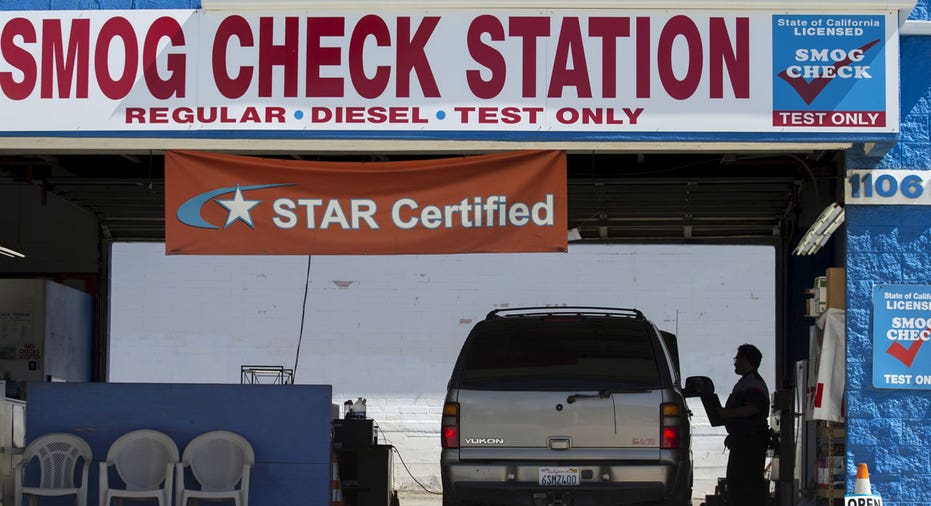Automakers Hope to Reach Deal on 2025 Emissions

A trade group for automakers said on Tuesday it hopes to reach a deal with California and the Trump administration over vehicle fuel efficiency standards.
Mitch Bainwol, chief executive of the Alliance of Automobile Manufacturers, a trade group representing General Motors, Toyota Motor, Volkswagen and others, said at a forum ahead of the New York auto show that automakers were not seeking a rollback of existing standards.
“What we want is rational, predictable, stable policy," he said. Automakers hope "that over time responsible parties will come together and have an honest conversation about what the data is."
In March, President Donald Trump ordered a review of U.S. vehicle fuel-efficiency standards from 2022-2025 put in place by the Obama administration, saying they were too tough on the auto industry.
But California opposed weakening the rules, threatened to pursue tougher standards unilaterally and could mount a legal challenge. New York has also threatened a fight.
The White House plans to hold negotiations with car companies and California. A deal would remove uncertainty for automakers, who need years of lead time to engineer future models and want uniform rules across all 50 states.
The Obama administration's rules, negotiated with automakers in 2011, were aimed at doubling average fleet-wide fuel efficiency to 54.5 miles per gallon by 2025. Under the 2011 deal, the 2022-2025 model year rules must be finalized by April 2018.
"The talk the of rollback is fallacious. What we are talking here is the nature of the slope," Bainwol said. "We will get to the Obama numbers (54.5 mpg). We will get beyond the Obama numbers. The question is when and how."
Without a deal, automakers could be forced to meet one set of standards in California and about a dozen states that have adopted its rules and other rules in the rest of the country.
Environmentalists say the rules are saving consumers billions of dollars in fuel. Dave Cooke, a vehicle analyst at the Union of Concerned Scientists, said in a blog that "fuel economy regulations have been critical in moving the needle towards energy efficiency — the auto industry is historically resistant to change, pushing back on safety improvements like air bags and seat belts."
In 2011, Obama said the rules would save motorists $1.7 trillion in fuel costs over the life of the vehicles, but cost the auto industry about $200 billion over 13 years.
(Reporting by David Shepardson; Editing by Cynthia Osterman)



















